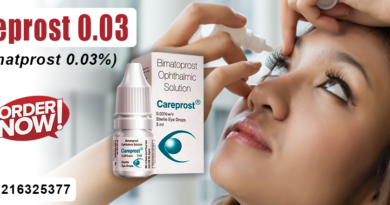Eye Allergy or Infection? Deciphering the Causes of Eye Inflammation
Taking care of our eyes is incredibly important, but it can be challenging when they become inflamed, itchy, or uncomfortable. Eye inflammation can be triggered by a variety of factors, often making it difficult to determine whether you’re dealing with an allergy or an infection. Understanding these potential causes is the first step toward effective management and treatment. Let’s unravel the mystery behind eye inflammation and explore how to address it.
Spotting the Symptoms
Both eye allergies and infections can present with similar symptoms, making it tricky to differentiate between the two. Common signs of eye inflammation include redness, itching, tearing, burning, and blurred vision. Swelling of the eyelids, sensitivity to light, and discharge can also occur.
– Allergic Reactions: Allergies are often seasonal and marked by intense itching accompanied by tearing and redness. They are your body’s response to allergens like pollen, dust, or pet dander.
– Infections: Eye infections, such as conjunctivitis, can be caused by bacteria, viruses, or fungi. Bacterial infections often lead to yellow or greenish discharge, while viral infections might also be associated with cold symptoms.
Digging Deeper: Types of Eye Inflammation
Understanding the cause of your eye inflammation requires a closer look at the different types:
Allergies
Eye allergies, also known as allergic conjunctivitis, happen when your immune system overreacts to substances like pollen, dust mites, feathers, or animal fur. The body releases histamines and other chemicals to defend against the allergens, resulting in red, itchy eyes. This condition is often accompanied by a runny nose and sneezing, particularly during allergy seasons such as spring and fall.
Infections
Eye infections may arise from:
– Bacteria: Bacterial conjunctivitis is highly contagious and can spread quickly in crowded places. It requires antibiotics for treatment to prevent further complications.
– Viruses: Viral conjunctivitis often resolves on its own but is also highly contagious. Typical pathogens include adenoviruses, which are also responsible for the common cold.
– Fungi and Parasites: Less common, these infections can occur through contact with contaminated water or soil and may require specialized treatment.
Can You Treat Eye Inflammation at Home?
Sometimes, mild cases of eye allergies and infections can be managed at home with over-the-counter remedies and good hygiene practices. Here are several ways to soothe irritated eyes:
– Cold Compresses: Applying a cold, damp washcloth can relieve inflammation and itchiness for both allergic and infectious causes.
– Artificial Tears: These can help wash out allergens or infectious particles while also keeping your eyes moisturized.
– Proper Hygiene: Frequent hand washing and avoiding touching your eyes can prevent the spread of infections.
Knowing When to Seek Professional Help
While some cases of eye inflammation can be handled at home, it’s essential to know when to contact a healthcare provider. Persistent or severe symptoms such as intense pain, vision changes, or thick discharge warrant professional evaluation. Your healthcare provider can recommend appropriate medications or further testing if needed.
Treatment Options: What Can You Do?
For Allergies
If your eye inflammation is caused by an allergic reaction, antihistamine eye drops may be recommended. These can block the histamines that cause itching and redness. There are also mast cell stabilizers that prevent the release of chemicals that lead to allergic reactions.
For Infections
Treatment depends on the type of infection:
– Bacterial: Prescribed antibiotic drops or ointments to clear the infection.
– Viral: Mostly requires supportive care since antibiotics are not effective. Maintaining hygiene and minimizing contact are crucial.
– Fungal or Parasitic: Specialized antifungal or antiparasitic treatments are necessary, often requiring a visit to an eye specialist.
Exploring Advanced Treatment Options: Buy Alphagan P Online
In certain instances, advanced treatments like prescription-strength eye drops might be necessary. For those looking to manage chronic conditions like glaucoma, options such as Alphagan P can be effective. Alphagan P helps reduce eye pressure, crucial for preventing damage caused by glaucoma. It’s important to consult with an eye care professional before starting any new treatment and to ensure you Buy Alphagan P Online from reputable sources to guarantee safety and efficacy.
Prevention: Keeping Your Eyes Healthy
Being proactive can greatly aid in reducing occurrences of eye inflammation:
1. Understand Your Triggers: Identifying allergens and wearing sunglasses during high pollen seasons can limit exposure.
2. Practice Good Hygiene: Regularly washing hands, replacing eye makeup every three months, and cleaning contact lenses with proper solutions can prevent infections.
3. Manage Chronic Conditions: For those with a history of eye disease, regular check-ups and compliance with treatment plans help keep symptoms at bay.
In Summary
The eyes are not just windows to the soul; they are vital organs requiring proper care to maintain their health and function. Whether you’re facing allergies or an infection, knowing the root cause of eye inflammation is key to effective treatment. Through recognizing symptoms, seeking timely medical advice, and choosing appropriate therapies, you can protect your vision and enhance your overall eye health.
By understanding and addressing the nuances of eye allergies and infections, you can take proactive steps toward maintaining eye health and comfort. And should you need advanced treatments, remember to consult with your healthcare provider on safe ways to Buy Alphagan P Online, ensuring you receive genuine and effective medication tailored to your needs. Stay informed, be vigilant, and your eyes will surely thank you!




